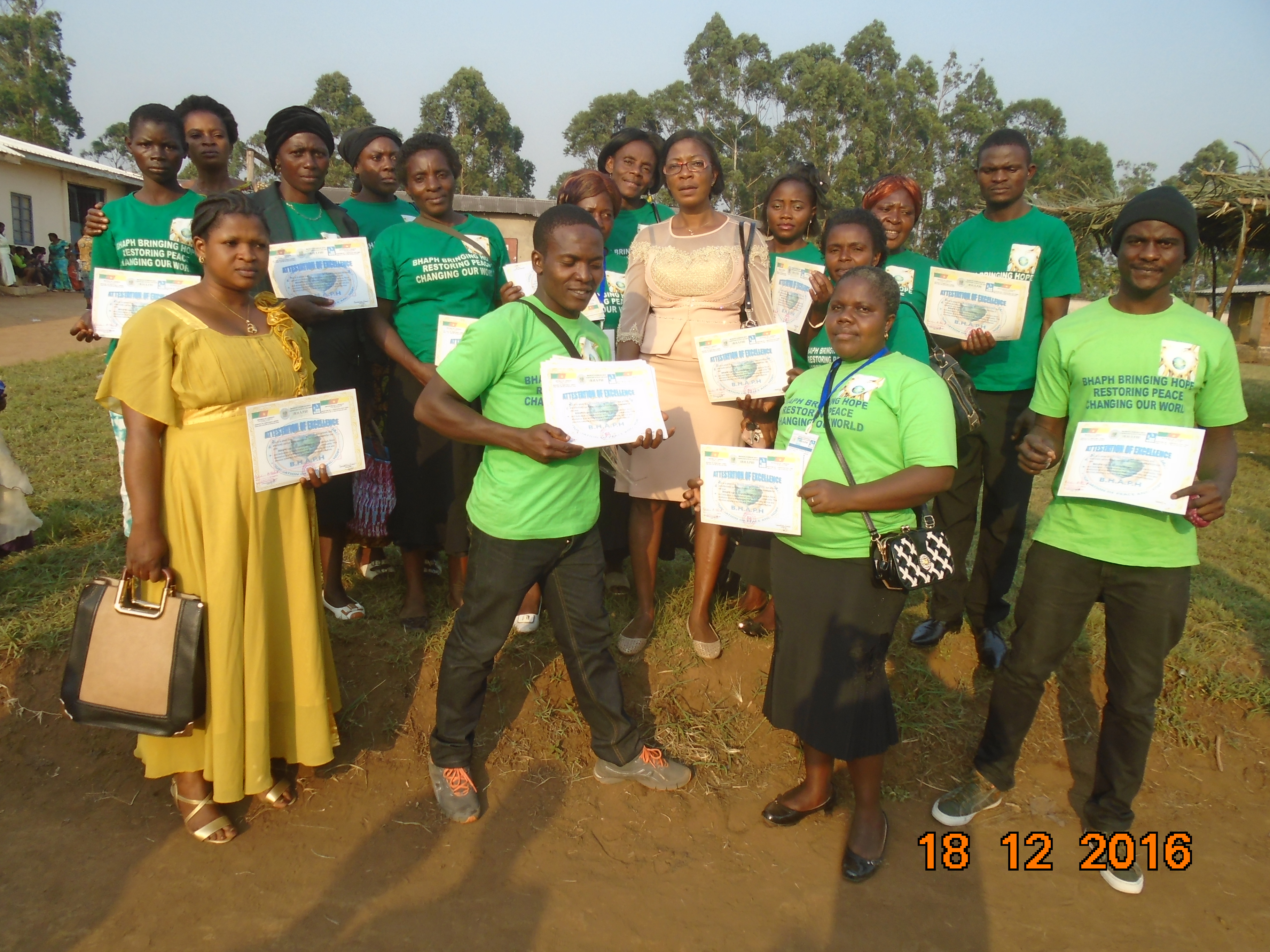In line with International laws and humanitarian principles, Bihaph seeks to assist vulnerable persons affected by war and conflict. Over 15.000 displaced persons have been identified in Menchum Division and a lot more displaced through out the national territory. Bihaph seeks to call on all the the plight of these suffering population. For over eight months today this part of the globe has been denied basic access to roads, electricity, telephone net work and other social amenities. These have increased the rapid rural exodus en mass The deteriorating and deplorable living conditions imposed by waring fractions on the population is too severe and over bearing. Besides poverty and economic hard ships, the fragile population has to bear the exigencies of losing their livelihood in a senseless war.
BIHAPH wipes tears and put smiles on the faces the the most affected but then cries out for more support to reach more people in need.








.jpg)
.jpg)